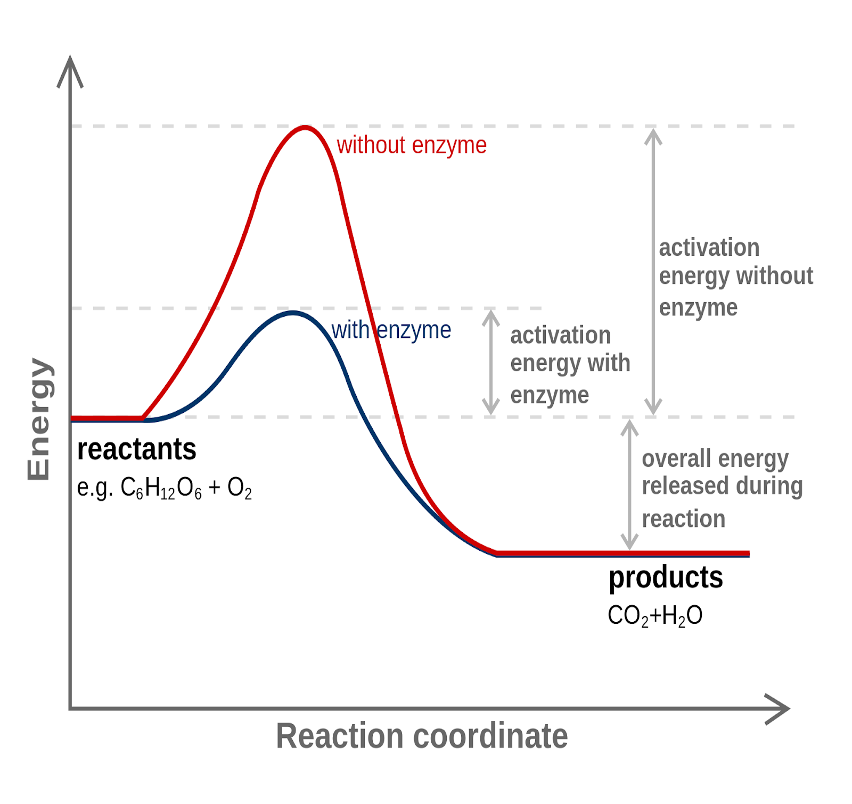By Zoe Terwilliger
(noun / ENZ-eye-m)
What does it mean?
An enzyme is a molecule that “speeds up” the rate of a chemical reaction. Enzymes are a type of protein, so they are made of amino acids like all other proteins. Enzymes take substrates, which are molecules that will undergo reaction to form a product, and manipulate them to make the reaction more accessible. This is why it is often said that enzymes aid in “speeding” the reaction rate. Enzymes are similar to any other catalyst, like heat, except enzymes are EXTREMELY specific to their substrates.

Enzymes are able to speed up chemical reactions by manipulating their substrates in a way that lowers the activation energy of the reaction. The activation energy is the minimum amount of energy that molecules must have for a reaction to take place. This is usually explained using a hill as an analogy. It is easier to bike up a small hill than it is a larger one (See Figure 1 for example). Enzymes lower the “hill” so that the reaction can more easily proceed.
Enzymes are required in all organisms and are necessary for life.
How do I use it in a sentence?
Is there an enzyme we can use to accelerate the reaction?
Zymogens are inactive forms of enzymes. The stomach secretes the zymogen pepsinogen, which is then converted to the enzyme pepsin. Pepsin is an enzyme that helps us digest other proteins.

Related terms
- Ribozymes – Ribozymes are molecules that catalyze biological reactions, however they are made of nucleic acids like RNA, rather than the amino acids that comprise enzymes.
- Zymogens – an inactive enzyme that is changed to an active form
Fields of study in which this word is commonly used
- Enzymology
- Molecular Biology
- Biochemistry
- Genetics
